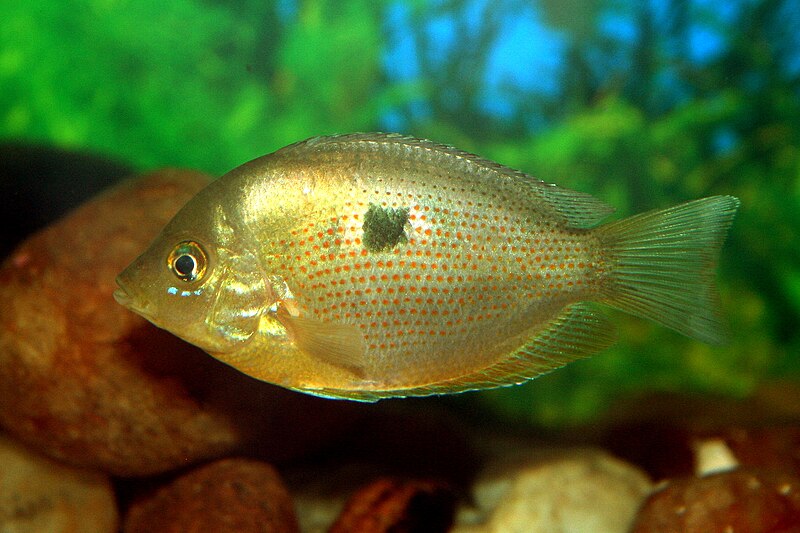How many times have we been working on our aquariums and done something that made us utter that phrase (or something more colorful, perhaps)? Maintaining aquariums can sometimes be a chore, and sometimes it can be downright dangerous, whether for us or for or fish. Bad things don’t just happen to newbies! I thought it might be interesting to find some examples of “oh, crap” moments, mostly from people who work at That Fish Place, just to show that even experts have bad days when it comes to keeping fish and corals. Read More »
Category Archives: Common Aquarium Questions
Feed SubscriptionProper Handling of Aquarium Catfish – Avoiding Painful Pricks and Punctures
 Hello everyone, Craig here again. If you have read some of my previous blogs, you know that I am a catfish fan. If it is weird and ugly, has whiskers and swims, I probably think it is one of the coolest things ever! Last night I was watching River Monsters. One of the trivia questions posed during a commercial break asked the show’s host what fish had given him his most painful injury. Though answer choices ranged included piranhas, catfish and others, and it was indeed the catfish that host Jeremy Wade said had given him his most painful injury. Apparently, one of the 8 inch barbs from an African species of catfish had run through the length of his finger. Having been stuck by my fair share of catfish (though much smaller species), I can say that a catfish spine can be an extremely painful injury with long-lasting effects. Read More »
Hello everyone, Craig here again. If you have read some of my previous blogs, you know that I am a catfish fan. If it is weird and ugly, has whiskers and swims, I probably think it is one of the coolest things ever! Last night I was watching River Monsters. One of the trivia questions posed during a commercial break asked the show’s host what fish had given him his most painful injury. Though answer choices ranged included piranhas, catfish and others, and it was indeed the catfish that host Jeremy Wade said had given him his most painful injury. Apparently, one of the 8 inch barbs from an African species of catfish had run through the length of his finger. Having been stuck by my fair share of catfish (though much smaller species), I can say that a catfish spine can be an extremely painful injury with long-lasting effects. Read More »
Feeding your Koi and Pond Fish – Simplifying Seasonal Dietary Requirements
There are so many food formulas and brands of pond fish foods on the market today that it can be daunting for a pond hobbyist to make any sense out of the mix. What and when should I feed my Koi? Why can’t I feed the same staple food year round? What are the differences in the formulas? These are all common questions, and just a sampling of those we answer each day at That Fish Place.
Anyone with koi and other pond fish knows that they aren’t generally picky eaters. As soon as the ice melts they flock to the surface, looking ravenous after the long winter. But just because they will eat doesn’t mean that it should be fed or be fed what you are feeding. Unless you live in a temperate area or you keep your pond heated during cold months (above 50F) it is vital to their health and appearance that they be provided with appropriate nutrition for each season. Commercial food formulas are developed with seasonal changes in growth, metabolism and other biological activities in mind. Lots of things go on in the body of a pond fish as the seasons change – all of which have to be considered when you purchase food. Read More »
My Favorite Madagascar Cichlids and Other Uncommon Oddballs – Part 2 – From the Mind of a Cichlid Mad Man
So this is the final part of this long blog series highlighting my favorites…here are my final five:

Read More »
Making Our Fish Feel at Home – PVC of a Different Color
Hello, Jason here. Working in the fishroom at That Fish Place, I have a great opportunity to learn and discover new things about the fish and inverts so many people love to keep in their aquariums. My co-workers (being science majors and marine bio graduates) are able to work closely with these animals, observing captive behaviors and sometimes having the time to experiment with how they can keep the fish happier while they are held at our facility. Recently, we’ve been experimenting in our holding tanks – I thought might share one of our recent tests, if for no other reason than to explain what you might see if you visit. Read More »
 That Fish Blog – Aquarium Advice and Information
That Fish Blog – Aquarium Advice and Information
